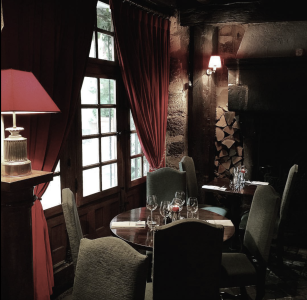In my two-day-old review (2.29) of Dune: Part Two, I wrote the following: “If you can put aside the Frank Herbert story and just tune in to the other-worldliness, it’s quite a feast for the eyes — a major league art film. Stunningly exotic and quite original…quite the aural-visual knockout.”
Friend to HE: “Yes, but how can you put aside the Frank Herbert story? The car-wreck horror of Herbert’s storytelling is front and center. He’s the worst storyteller in the history of the planet. Dune: Part Two actually makes J.R.R. Tolkien seem interesting. I wouldn’t say that the movie has a bad script. I would say that it doesn’t have a script.
“I dug all the visual stuff you were talking about — the sandy colors, the moody grandeur of the fascist imagery. I’m not immune to that sort of visual-atmospheric pizzaz.
“But I still wanted to shoot myself. The film felt nine hours long to me. If you told me I have watch Dune: Part Two again, I would jump off a bridge instead.
“Some of the violence was good, and I really liked Austin Butler psycho baldie. But I did not think this was a good Chalamet performance. During the last act when he started shouting and asserting dominance, he started to remind me of Nicolas Cage.
“I’m just shocked that you got swept up in it…”

HE to Friendo: “I did so by deliberately ignoring the story particulars and large portions of the script. I was only interested in the acting and the design and atmosphere and cinematography and editing. I was totally bored by all that Fremen vs. Harkonnen bullshit. I could sense early on that I would soon feel tortured if I tried to follow the story. I decided instead to just turn on the phone and read the synopsis on Wikipedia.
“I didn’t care about the story, but I liked everything else about the film. It looks and feels really cool and exotic and unlike anything I’ve seen in this kind of dense fantasy realm…it’s a world unto itself, and the creation of it all is truly fascinating.”
Friendo to HE: “To me that’s like saying you liked everything about a restaurant — the look, the vibe, the service — except for the food.”
HE to Friendo: “I’ve never felt that a script is the primary supplier of the ‘food’ in a film. A script is obviously necessary in terms of exposition and expressing themes and providing basic story structure, but as Stanley Kubrick famously said, the payoff we get from most films is more from the emotional mood supply. The hook of a good film isn’t so much from the think of it but the feel of it.
“That said, I’ve actually felt this way about some restaurants. I’ve adored the lighting, the decor and design, the cultured vibe, the tablecloth and lighted candles, the conversation with the person or persons I’m eating with, the excellent service, the upscale bathrooms, etc. Sometimes the food is phenomenal and sometimes it’s just okay. But regardless of how good the food is, I tend to value the other things as much as the food and sometimes more than.
“There’s a restaurant in Paris that I’ve been to six or seven times, called Le Coupe Chou. When you walk downstairs to use the facilities there’s a door that leads to some kind of sub-cellar or subterranean tunnel that leads God-knows-where, and the rank aroma from inside that tunnel is astounding…it smells like Paris from the 15th or 16th Century, and you can’t sample that kind of aroma anywhere in North America, I swear…it’s strictly an ancient European city smell. This in itself sold me on Le Coupe Chou, regardless of how good the food is.”













